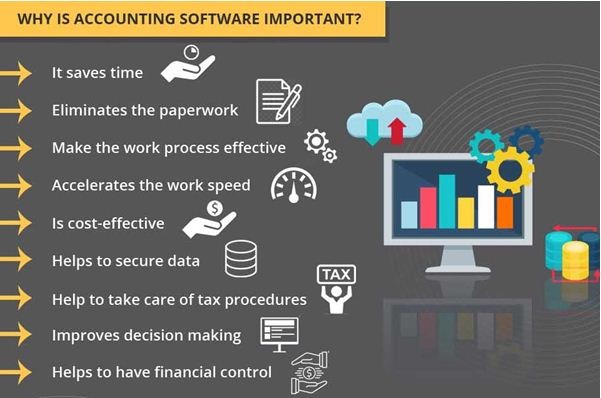The Accounting Software Market reached USD 12.03 Billion and is expected to reach USD 19.6 Billion by 2025, at a CAGR of 8 percent over the 2020-2025 estimate periods. The accounting software and financial management system industry has undergone many shifts in the last twenty years. One of the main shifts is to deliver accounting software applications focused on the cloud.
Accounting software operates internally with various other applications such as CRM, SCM, HRM, and analytical dashboards and reports. Within financial functions such as accounts payable, cash inflows, payroll, and trial balance, accounting solution is used to manage and monitor all such transactions. This software also monitors sales, maintains cash flows, conducts analyses, and produces visualizations and reports. Large businesses and small and medium-sized organizations are widely embracing the accounting software for tracking financial transactions.
Who Uses Accounting Software?
accounting software is utilized by accountants, administrators, CFOs, and other representatives of accounting teams. The accounting team ranges in size based on the scale of the organization and the scope of its activities, which can have one person accountable for all or staff in control of particular financial processes such as AP, AR, cash management, or cost management.
Computer accounting solutions are a must for virtually any company. They enable businesses to manage economic wellbeing and strategize long-term success. Online invoicing helps firms to file invoices, receive payments electronically, and get charged more easily. Expenditure monitoring is another important accounting feature that helps businesses to monitor, manage, compensate, and evaluate expenditures relevant to the workers. Financial information, such as forecasts, income & loss accounts, balance sheets, and cash flow statements are perhaps the most demanded best accounting software features.

Key Features of the Best Accounting Software
Auto-billing Capability –
Best accounting software enables setting up a billing schedule helping automatically charge subscription-based and recurring clients. It also secures all client card information and receives payments within seconds.
Late Payment Reminders –
To avoid constant late payments that slow down businesses, the software enables the creation of automatic reminders to gently push clients with emails when invoices are overdue. It also has default settings, or can manually customize messages to meet business needs.
Benefits of Accounting software:
Simplification - Accounting software put control of funds in the hands of a non-accounting crowd, aimed at giving significance to statistics while executing electronic computations. With hardly any training, the company owner can execute all financial transactions and meet the legal requirements from a desktop computer or smartphone, even without having to pay a third party to keep the expenditure in the loop.
Cost reduction - Accounting and finance frameworks simplify key estimates and operating processes and gain a charge of the sales process and you don't need to outsource financial services to an external specialist. They also raise printing and storage prices and store confidential data is safe and controlled locations.
Total financial disclosure - The key advantage of effective accounting processes for an accountant or an auditor is that they avoid expensive and repeated human mistakes. Calculating incorrect quantities or failing to disclose results on time will potentially contribute to a business problem and this is when it is most helpful to optimize calculations.
Read a Press Release on Accounting Software: https://www.360quadrants.com/press-release/360quadrants-releases-best-accounting-software-companies-of-2020
No comments:
Post a Comment